Good Works
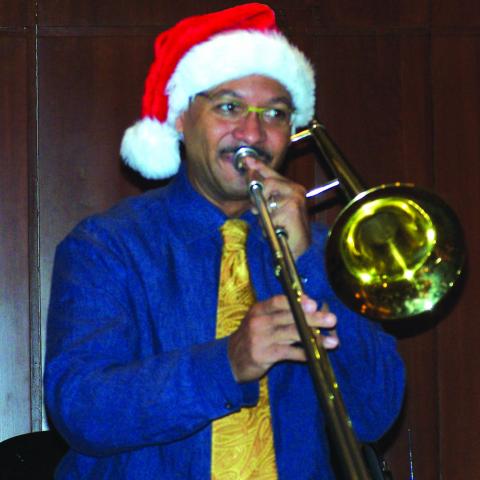
Delfeayo Marsalis ’89 plays a Christmas concert at Children’s Hospital in New Orleans.
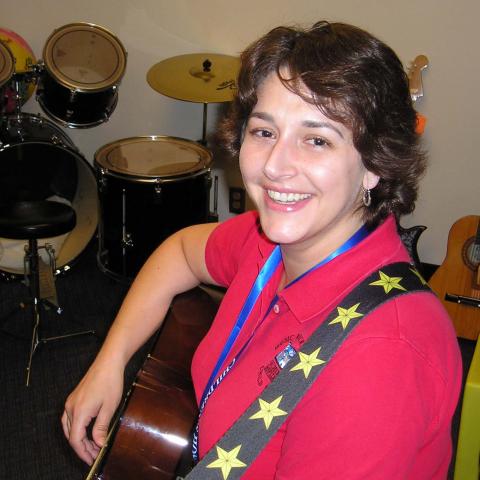
Suzanne Denu ’02
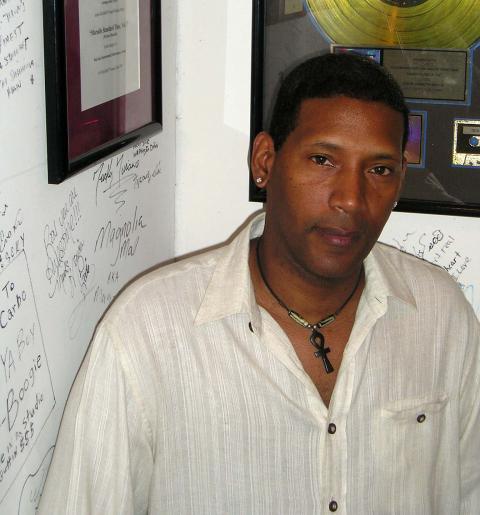
Ron Carbo ’90
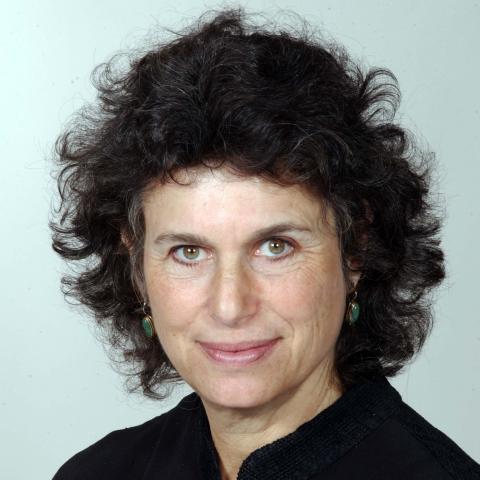
Laurie Cohen ’75
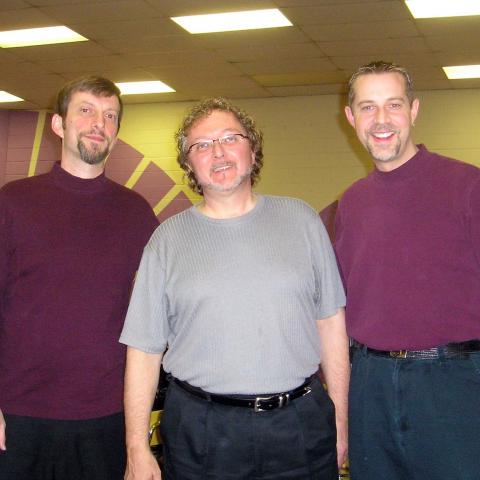
The Matrix Trio from the left: Todd London ’87, Joe Smyth ’79, and Scot Corey.
On a warm and humid Louisiana afternoon, music therapist Suzanne Denu ’02 is with an eight-year-old patient named Darren inside Children’s Hospital in New Orleans. Darren is receiving two treatments simultaneously. For the first, Darren wears a mask and inhales medication to help increase his lung capacity that’s been diminished by cystic fibrosis. For the other treatment administered by Denu, he has a pair of drumsticks in his hands. Denu’s session helps keep young Darren’s spirits up as he goes through the regimen that has become too regular a part of his life. Darren hopes to be a drummer someday, so Denu has brought an African hand drum with her. She explains its origins and technique, and they play a few rudimentary rhythms call-and-response style. Denu pats her drum, Darren taps his sticks on the mattress of his bed. Denu’s music therapy session makes the half-hour Darren has spent connected to a machine fly by. She waves goodbye and promises they’ll get together again soon.
As we leave Darren, it becomes obvious from the greetings Denu receives walking through the halls drum in hand, a guitar slung over her back, that she’s made a lot of friends among the medical personnel and patients during her five years on the staff. “There are only two of us who provide musical therapy in this hospital,” she tells me. “Every kid responds to music; they’re musical beings. But there’s no way for two of us to reach every kid in here.”
With this in mind, Denu took steps to touch more children with music by launching “Melodies for Nola’s Children” last year. It’s a concert and educational series that brings in a variety of local musicians to perform for patients and their families every other week in the hospital’s auditorium. Trombonist Delfeayo Marsalis ’89 was the impetus for the idea. “Delfeayo approached me and said, ‘I’d love to bring some musicians in,’” Denu says. “He had received money to do outreach and wanted to play here. Now, he comes once a month and provides a fun, educational program. He talks about the music they perform and passes out percussion instruments so the kids can play along. He even lets them try his horn.” Seeing the positive effect of Delfeayo’s efforts, Denu sought funding to develop a regular series. She applied for and received a 2009 Berklee Alumni Grant as well as funding from the New Orleans Association of the Arts and ASCAP. The money has enabled her to bring in a range of musicians twice a month.
“The kids staying here need to see a performance for relaxation and escapism,” Denu says. “It’s good for them just to be with their families. But it’s also an opportunity for us to educate them about different musical styles. In New Orleans, there’s such a musical gumbo of Cajun, zydeco, jazz, blues, and pop, it would be a shame not to teach the kids and maybe inspire them to search for this music when they go back home.”
Denu looks for special musicians for the series. “This is not your standard gig,” she says. “I need artists who can relate to the kids at their level and realize that they will be playing for people with different abilities and disabilities. I’m asking a lot more of them, but everyone has given me a rate that’s lower than what they would normally get. Afterwards I get e-mails from the acts, thanking me and saying they’d like to come back. This benefits the musicians as well. If we can give the patients and their families something positive in contrast to the bad news that many hear from the hospital, we’ve done something good. I’m grateful to Berklee for helping me to get this series happening.”
Empowering Youth
On the walls flanking the stairway leading up to Ron Carbo’s Soul Kitchen Studio, a number of framed gold and platinum records that hang alongside other music industry awards. The wall testifies to Carbo’s success as a studio engineer and producer. Covering the rest of the wall are countless signatures and well wishes from scores of people, including the many youth he has mentored in the studio through his Youth Power Initiative. Carbo, who lives in Clinton, MS, is the executive director of the Ron Carbo Foundation and its Youth Power Initiative that exposes at-risk youth between 12 and 18 to the arts by teaching music technology.
Carbo’s program takes in kids from hard-luck families. Poverty is widespread in Mississippi, and some of the youth in Carbo’s program are being raised by siblings or grandparents because one or both parents are in jail.
“Kids whose parents are incarcerated are at a huge disadvantage,” Carbo tells me. “I take a lot of them into the program. Some have raw talent. But if a kid doesn’t have much talent but has the will to really work at it, I can’t turn him away. Kids whose parents are incarcerated have felt a lot of rejection already. If a kid just can’t sing but wants to be in the program, I’ll put him behind the board or have him set up mics. I try to work with them, and they feel valued.”
Carbo understands what it’s like to have a rough start in life. He grew up in the projects in New Orleans and was raised by his mother and grandmother. After he heard the New Orleans Symphony Orchestra, he wanted to play and took up bass, clarinet, and trombone. Carbo attended the same high school as the Marsalis brothers, Harry Connick Jr., and Terrence Blanchard and studied in film scoring and music production and engineering at Berklee. To augment what his family could afford for tuition, he joined the U.S. Marine Corps Reserves.
His first professional studio job was with Maurice Starr’s House of Hits Recording Studio in Boston. Just as he began working with acts such as New Kids on the Block, Lady Soul, Phajja, and on a few movie soundtracks, Carbo’s marine unit was activated for the first Iraq War. He returned with commendations and resumed engineering for many high-profile clients. He later worked as a copyist for Wynton Marsalis and conducted the trumpeter’s music for the ballet Griot New York.
Carbo’s studio and home are situated on a peaceful two-acre property in Clinton, MS, a suburb of Jackson. With the alumni grant money Carbo received, he will hire other instructors and purchase additional music production equipment. Carbo’s program offers the youth between three months and a year of tech instruction. “When I bring kids up to the studio, they look around and say, ‘You live in a rich neighborhood. I want to do what you do.’ But I tell them I made it out of the projects in New Orleans because I worked hard and they need to pay their dues too.”
A former student Carbo ran into recently told him he was graduating as a music major from Jackson State Community College. “A few of the kids from my program are doing really well. One is a successful DJ in Atlanta, others are independent hip-hop artists. They’re working at their music. Most importantly, they’re not on drugs or involved with crime.”
Magic Door
The proposal submitted by alumni grant recipient Laurie Cohen ’75 was strikingly different from the others. Her method of outreach has brought many positive effects for both gifted amateur orchestral musicians and audiences in her northern California locale. Cohen’s creative programming of concert music has also informed her audiences about some little-known aspects of people and places in California.
Cohen has a rich educational background. In addition to studying jazz guitar at Berklee during the 1970s, she earned a master’s degree in counseling psychology and worked for years as a marriage and family therapist before deciding to further her music education. “I wanted to change careers from psychotherapy and become a high-school music teacher,” Cohen says. “But the first courses I took at San Francisco State University were in conducting. As soon as I stepped onto the podium, I knew that conducting was what I wanted to do with my life.”
Cohen took private conducting instruction from Urs Leonhardt Steiner, the director of the San Francisco Music Community Center Orchestra. Cohen served for a time as the ensemble’s assistant conductor before establishing her own group. “It was like walking through a magic door when I entered the orchestral world,” she says. “I knew I was too old to launch a professional conducting career, so I started a community orchestra.”
In Marin County, Cohen first assembled a 15-piece string orchestra in 2000. Today her Mill Valley Philharmonic (MVP) orchestra numbers 55 players ranging in age from 15 to 75 that come from all walks of life. And in addition to choosing repertoire and conducting, Cohen handles all the orchestra’s business (budgets, auditions, bookings). The endeavor offers Cohen the chance to blend two of her passions. “I’ve always had an interest in amateur music making, and I’ve also been very involved in community activities,” she says. “There are so many talented people who are accomplished professionals in other fields but are very dedicated to music and want a chance to play.”
Cohen has hired professional soloists and composers to create an experience that is inspiring to the orchestra as well as the audience. In 2003, Cohen started programming themes for the MVP’s concerts to educate the audience about the music they play. For a recent themed series about teachers, Cohen programmed the Brahms Academic Festival Overture and taught the audience about the student drinking songs embedded in the work. Gustav Holst’s The Planets taught the order of the planets. Another notable theme had Cohen delving into the orchestral music commissioned through the New Deal during the Depression as part of the Works Progress Administration (WPA) program.
“The audiences are wild about this aspect of our programs,” Cohen says. “The insights help them to listen in a different way.” Her choice of venues brings music to places other than typical concert halls. “We played our WPA concerts at the original Treasure Island exhibition hall and the San Francisco Zoo because both were built through the WPA.”
The goals of the orchestra are to provide free public concerts to people in their own communities and increase awareness of California’s historical legacy. “Anything that brings the audience closer to the orchestra makes for a better community,” Cohen says. “It unites the listeners and the players.” Under Cohen’s direction, the orchestra is performing at a high musical level. “It helps to dispel preconceived notions many people have about a squeaky old community orchestra. The feedback we’re getting is that people consider this a tremendous gift to the community.”
Original Motivation
Over the past three decades, Joe Smyth ’79 has become widely known for being a founding member and the drummer for the award-winning country band Sawyer Brown. The group has had more than 20 top-10 hits, sold in excess of 6 million records, and continues to fill arenas across America and in Europe. In addition to his country music pursuits, Smyth is also a classically trained percussionist. After graduating from Berklee, he earned a master’s degree in percussion and composition at the University of Miami.
Smyth is a dedicated family man and an involved member of his community in the suburbs of Nashville. In 2005 he and fellow percussionists Todd London ’87 and Scot Corey formed the Matrix Percussion Trio. “When we talked about forming this group, we discussed playing at arts festivals and the like,” he says. “But all three of us are teachers and feel very strongly about education. So it felt natural for us to go out and do school performances and presentations.”
The trio members are mindful of the cuts to or elimination of public-school music programs, so they have directed efforts toward underserved youth in elementary and middle schools hoping to inspire some to take up an instrument. They decided early on to seek funding to make the program available at no charge to schools. In addition to the Berklee grant, the group has received support from the Zildjian Family Opportunity Fund and the musician’s union performance trust fund to defray expenses. This season, out of the 25 dates the group made available, they have only four open dates for the fall.
“I think we’ve got 25 schools clamoring for those four spots,” says Smyth. “With the economy being like it is and the belt-tightening all the schools are doing, they’re pretty starved for programs to come in. “I’m sure we’ll become even more sought-after.”
I recently caught the trio’s presentation at the Harris-Hillman Special Education School in Nashville. They played an array of percussion instruments, including steel drums, timbales, congas, agogô bells, a drum set, a cuíca, and even spoons and buckets. The music ranged from Brazilian grooves to reggae to Jamaican songs to movie theme songs. At other schools, Smyth says the program features more dialogue. Their “We Are the World: Percussion around the Globe” presentation showcases American music styles and music from Africa, Asia, the Middle East, and South America. The discussion centers on how certain percussion instruments developed as a result of slavery, oppression, and conquest.
Of the satisfaction Smyth derives from this work with young people, he says, “For 27 years, I’ve had a great livelihood with Sawyer Brown. It’s been a great life. We’ve traveled the world and will continue to do so, but I wanted to get back in touch with what originally got me into playing music. Seven years ago, I started teaching at a private school. I love working with kids. You shouldn’t just die after amassing all this knowledge. So every day, I get to dole it out in big ladlefuls, and I love that. When a kid comes up after a [Matrix Trio] school concert and says, ‘I really liked that, and you know, I want to play percussion too,’ it’s very precious to me.”
For further information or an application for Berklee’s 2009–2010 alumni grants, visit http://alumni.berklee.edu/grants.html.




